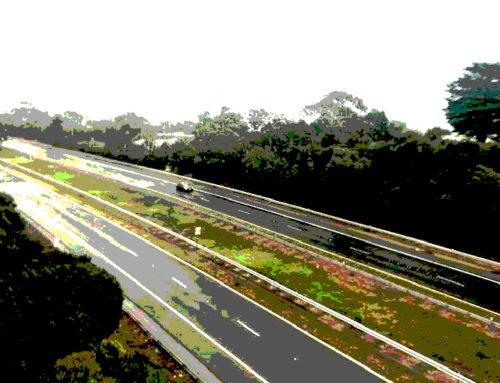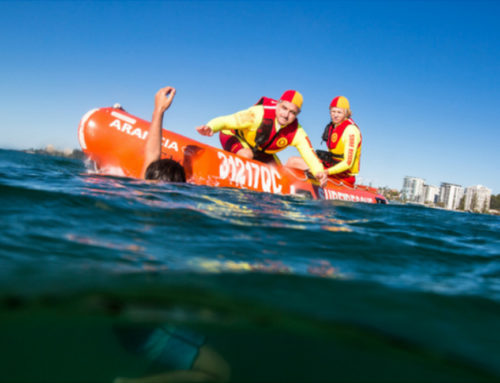SO HOW ARE WE REALLY DOING PEOPLE?
This week in Melbourne and Victoria the COVID-19 number of deaths reached 25 – our highest daily toll to date.
This news of a rising death toll comes with mixed feelings. As restrictions ease, we are experiencing a reprieve and a growing belief that we are heading back to a normal(-ish) human existence. Today we can dine inside a café and our retail shops have opened. Our live music could return as soon as next month – very soon we may be allowed to travel beyond our state borders.
But in Melbourne and Victoria, we have lived through successive, severe, long term, snap (shock) lockdowns, and we have learnt not to count our chickens.
Nevertheless, we continue to hold out hope (that things will get better) and we overtly practice gratitude every day for all that we have – because we have also learned – that’s how to stay mentally and physically afloat.
Our young people have learned these lessons too. At a time in their lives that should be about freedom, driving cars, socialising, taking risks and growing up, it remains to be seen how the COVID Generation will come out of all this. We parents are hoping our youth will become stronger, more resilient, and reflective. That when freedom does come, they will be able to revel in it and know, for sure, that things will turn out alright.
On loan from a friend, I’ve been reading Hugh Mackay’s book; The Kindness Revolution. I was struck by the author’s assertion that the community sacrifices made to prevent the spread of COVID-19 should be seen as an outpouring of LOVE. In describing our community’s ability to make personal sacrifices for the common good, Mr Mackay uses phrases such as ‘impressive human capacity’ and ‘purest form of love’. He compares the recent experience to that of The Great Depression saying we may look back on these times with gratitude and think, ‘this will be the making of us.’
By this reasoning, Melburnians & Mornington Peninsula residents (who were subject to the same rules as Melbourne’s urban areas) should be incredibly proud. We are world record holders for enduring the most number of days in lockdown by any community in the world to date. And by Mr Mackay’s estimations, we have demonstrated a great deal of love for each other.
But there’s a caveat. His reflections were written at the end of the long lockdown of 2020 (Melbourne’s second Alpha wave). And at the time his book was published, we all thought we were through the worst of it. We had let our guard down and committed the whole dark experience to the past – never to be thought of again.
And then we watched as the Delta took hold in Sydney’s north. And we knew that it was only a matter of time before it jumped the border to OUR state. But we were still unprepared. It came in a Snap and suddenly we were in the thick of those murky lockdown waters all over again.
While Mr Mackay’s Kindness Revolution is not a study of the impact of COVID-19 (it is thoroughly worth reading along with Julia Baird’s Phosphorescence), I wanted to pick up his introductory thread and write a few notes, so I don’t forget, about what really went on here in Melbourne and Victoria during the winter of 2021 (Lockdown 6).
I wonder what is the character of our community in crisis? Where did human kindness shine its light and where was it decidedly lacking? And when darkness arose, how did we steer it a little closer to the light.
Shining a light on collective kindness
Looking at the community where I live on the Mornington Peninsula, it was clear that restrictions on work and livelihoods – a core feature of an individual’s sense of purpose – were not uniform in their impact.
For the Tourism, Hospitality and Arts industries – arguably the hardest hit – the impact was swift and complete. Those working in these industries were faced with a second winter of complete closure and no road map for opening. Without Job Keeper linking employees to owners, there was no incentive to safeguard positions. Many skilled employees went to look for pandemic-proof jobs in other sectors. As this was their second time around the block in as many years, tourist attractions, hotels, camps, wineries, breweries, tour operators, cafes, restaurants, store owners and arts practitioners stopped engaging, they slipped into acceptance and their voices of woe fell silent. But when it was time to open again, they were expected to ramp up, providing exceptional experiences worth paying for. They worked around the clock to reopen, ask their remaining staff to get vaccinated, put on a smile, changed up their hygiene and check-in procedures and exercised patience with testy customers. Perhaps their acceptance of the circumstances, while not being happy about it, was an example of Mr Mackay’s acts of human kindness.
But complete closure wasn’t the experience across the board. Our construction industry was too important to close (a pandemic proof industry). Many sole traders, labourers and private builders carried on with their work and made a good living. They worked long, hard days and supported their families, without the reward of holidays, weekend footy and pub sessions.
Most were grateful to be still working but when mandatory vaccinations for construction workers were brought in, the tone of our lockdown lives changed dramatically. Melbourne for the first time saw large scale civil unrest.
Why this all started with the construction industry is still a mystery for many. There was speculation that by allowing this industry to operate free of restrictions, the policy inadvertently created community divisions. There was a sense we were not all in this together after all.
Of course, those that joined the riots were a minority – those particularly susceptible to the voices of the anti-vaccination movement running rife through their social circles.
And all this happened to Melbourne at the height of our most infectious period, when we were at our most vulnerable –not our greatest moment of human kindness.
But amidst all this turmoil, teachers never dropped the ball for their young students. They were possibly the most flexible industry of all, switching from remote teaching in 2020 to face to face in early 2021 and back to remote again. As students gradually began to switch off their zoom cameras, teachers found themselves speaking into the void – was anybody listening? Not only were they required to meet all aspects of the curriculum, but student wellbeing became the core purpose of every subject. They demonstrated an ‘impressive human capacity’ for kindness.
Health and social workers are the silent stoic heroes of this pandemic. With virtues too deep and numerous to mention, they went to work with a definitive sense of purpose. They faced down their fears risking their own health daily, bringing the risk home to their families. They supported those most vulnerable in our community. It surely is an example of the ‘purest form of love’.
But we weren’t all making the same sacrifices. It is true to say that many individuals in Melbourne began to bend the rules as Lockdown 6 stretched on. Everyone was aware of what was happening, even the government Chief Health Officer alluded to the fact – gleaned from mobile phone tracking data – that many Melburnians were travelling beyond their 5 km and regularly visiting family for social interaction. We’d all heard about it. Lockdown fatigue. It had taken root in Melbourne.
Was our capacity for love waning?
As one who lives comfortably in a beautiful coastal environment, I didn’t begrudge those who illegally travelled to southern beaches from Melbourne. When they visited, they kept their heads low, risking a cold-water ocean swim or a long walk-in nature. Most illegal visits to homes were for care and caregiving – companionship for elderly or singles, or to bring some joy to lonely birthdays. Twenty-somethings created a ‘bubble’ with friends and got drunk in their rentals. Neighbours congregated at coffee shops to check in with each other. People knew what they needed to get by, and they took only the bare minimum of what they needed. Some were able to live completely within the rules (we salute you). But with the very real problem of our declining mental health, it was hard to be angry with the small incursions of people from the most locked down community the world has ever seen. Even CHO Brett Sutton conceded that. Showing empathy for an individual’s capacity for suffering – is surely also an act of human kindness.
Melbourne and the Mornington Peninsula may not hold the gold standard of human kindness (I think that’s reserved for Bhutan?) but there is no arguing that we are a very caring community. We know it will be bittersweet as we explore our freedoms, with anger over mandatory vaccination, an overstretched health system and the odd earthquake or cyclonic windstorm thrown in there – there are surely more tough days ahead.
But if the pandemic has taught us anything, it is the importance of finding joy and light amongst the darkness. We have been individually tested and as a community, and we seem to have prevailed. We now know the essentiality of our families, our friends, our neighbours, our teachers, our community health workers, and those hard-working construction workers – getting vaccinated and getting on with it. But also, those whose work might be seen as non-essential – the musician, the actor, the restaurant owner, the zookeeper, the venue manager, the retailer, the masseuse, the fitness instructor, the barista – and all those who have quietly nurtured their capacity for human kindness.
So how much love have we really shown each other?
Truck loads.






Go Nelly!